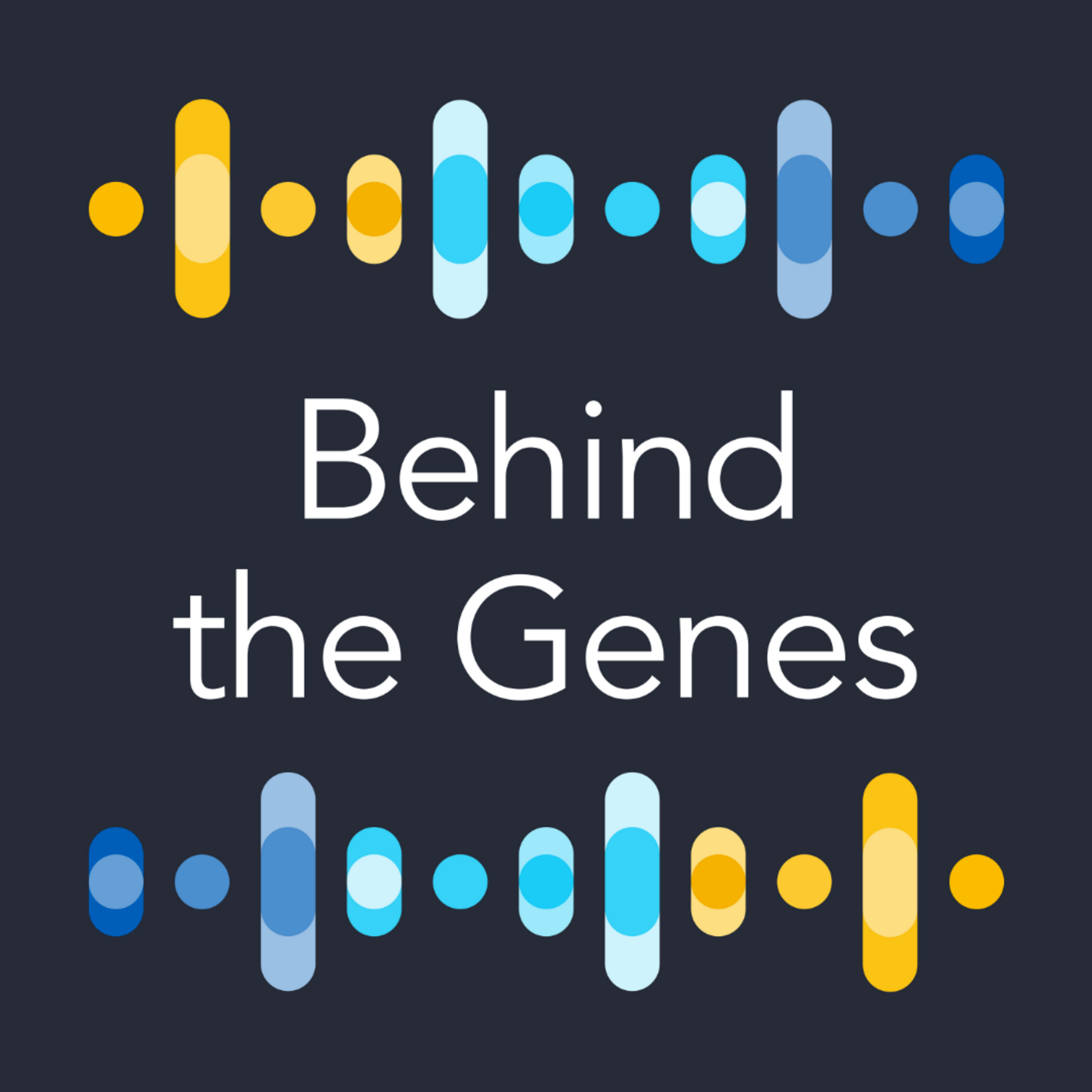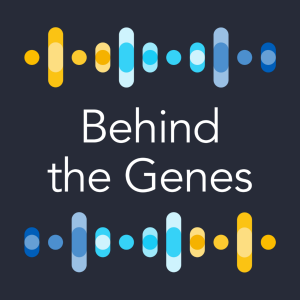
We are Genomics England and our vision is to create a world where everyone benefits from genomic healthcare. Introducing our refreshed podcast identity: Behind the Genes, previously known as The G Word. Join us every fortnight, where we cover everything from the latest in cutting-edge research to real-life stories from those affected by rare conditions and cancer. With thoughtful conversations, we take you behind the science. You can also tune in to our Genomics 101 explainer series which breaks down complex terms in under 10 minutes.
Episodes

Wednesday Oct 16, 2024
Arina Puzriakova: What is a polygenic disorder?
Wednesday Oct 16, 2024
Wednesday Oct 16, 2024
In this explainer episode, we’ve asked Arina Puzriakova, Scientific Curator at Genomics England, to explain what a polygenic disorder is.
You can also find a series of short videos explaining some of the common terms you might encounter about genomics on our YouTube channel.
If you’ve got any questions, or have any other topics you’d like us to explain, feel free to contact us on info@genomicsengland.co.uk.
You can download the transcript or read it below.
Florence: What is a polygenic disorder? I'm joined by Arina Puzriakova, Scientific Curator for Genomics England to find out more. So, Arina, first things first. How can our genes affect our health?
Arina: So, genes are short sections of DNA that contain information that the cells in your body need in order to make proteins. Each gene carries the instructions for making a specific protein, and each protein performs a different task that allows the body to develop and function properly, depending on the genes that we inherit from our parents. Also determines our unique physical features such as our eye colour, hair colour, and height.
When a gene contains a change that disrupts the gene's instructions, also known as a gene variant, in some cases, this can lead to the production of a defective protein or prevents a protein from being made altogether. A missing protein or one that is not working properly can have a knock-on effect on how the body functions and this can result in health issues or the development of a genetic disorder.
Florence: So then how can a gene variant lead to a disorder?
Arina: So the genetics of each disorder are unique. In some cases, a change in a single gene is enough to cause a genetic disorder, and these are known as monogenic disorders. These conditions often occur in childhood and tend to cause severe illness. individually, they are more rare affecting a smaller number of people in the population, and usually they run in families as parents pass the damaging variance onto their children.
But these changes can also happen spontaneously without a known cause. An example of a monogenic disorder, which some may be familiar with, is cystic fibrosis. Cystic fibrosis affects one in every 2,500 babies born in the UK, meaning that there's about 11,000 people living with cystic fibrosis.
Florence: So, we've just talked through monogenic disorders. What do we mean by polygenic disorder?
Arina: So polygenic disorders are on the other end of the spectrum for disorders.
They are caused by the combined effects of multiple different genes. Individually, each gene has a very small effect on causing the disease, but many variations in different genes can act together to have a great impact on individual's susceptibility to that condition. Environmental and behavioural factors such as your lifestyle and diet also often have an effect.
Polygenic disorders are much more common, typically affecting millions of people in the population, and they're usually diagnosed in adulthood.
Florence: Could you give me an example of a polygenic disorder?
Arina: A common example of a polygenic disorder is type two diabetes. It affects almost 4 million people in the UK.
So this means that we know there are many genetic variants that could have made these individuals more susceptible to diabetes, but there are also other factors such as age or being overweight that could have increased their risk.
Florence: Are there specific challenges when it comes to diagnosing or treating polygenic disorders?
Arina: So, if I start with monogenic disorders, these are much easier to test for because we simply need to look for the presence or the absence of a faulty gene in order to determine whether someone is a carrier of a genetic disorder. On the other hand, testing for a polygenic disorder is a lot more complex as they are influenced by the combined effects of many genes.
Meaning there is no single genetic test or treatment that will work for all patients with the same condition. We need large and diverse groups of patients to study in order to accurately determine which genes are important and which ones are not.
And this can be challenging to obtain. Also accurately measuring and comparing lifetime environmental factors and exposures further complicates the assessment.
Another challenge with polygenic disorders is that even though they can cluster in families, the inheritance is not as clear cut or predictable as it is with monogenic disorders. Carrying a specific combination of genetic variants that are already known to be associated with polygenic disorder does not necessarily mean that you will definitely develop that disorder.
However, this information can be used to calculate something known as a polygenic risk score, and this provides an estimate for the risk of developing polygenic disease at some point in life based on individual's unique genetic profile.
Florence: And why can knowing apologetic risk score be helpful?
Arina: So, by being informed about the probability of developing a particular polygenic disease, an individual can make behaviour or lifestyles changes that could help reduce their risk. To go back to the previous example, somebody who is more likely to develop type two diabetes based on their genetic makeup can do things like maintain a healthy weight. And eat a healthy diet to help reduce their risk of developing type two diabetes in the future.
Florence: That was Arina Puzriakova explaining what we mean by polygenic disorder. If you'd like to hear more explainer episodes like this, you can find them on our website at www.genomicsengland.co.uk. Thank you for listening.
